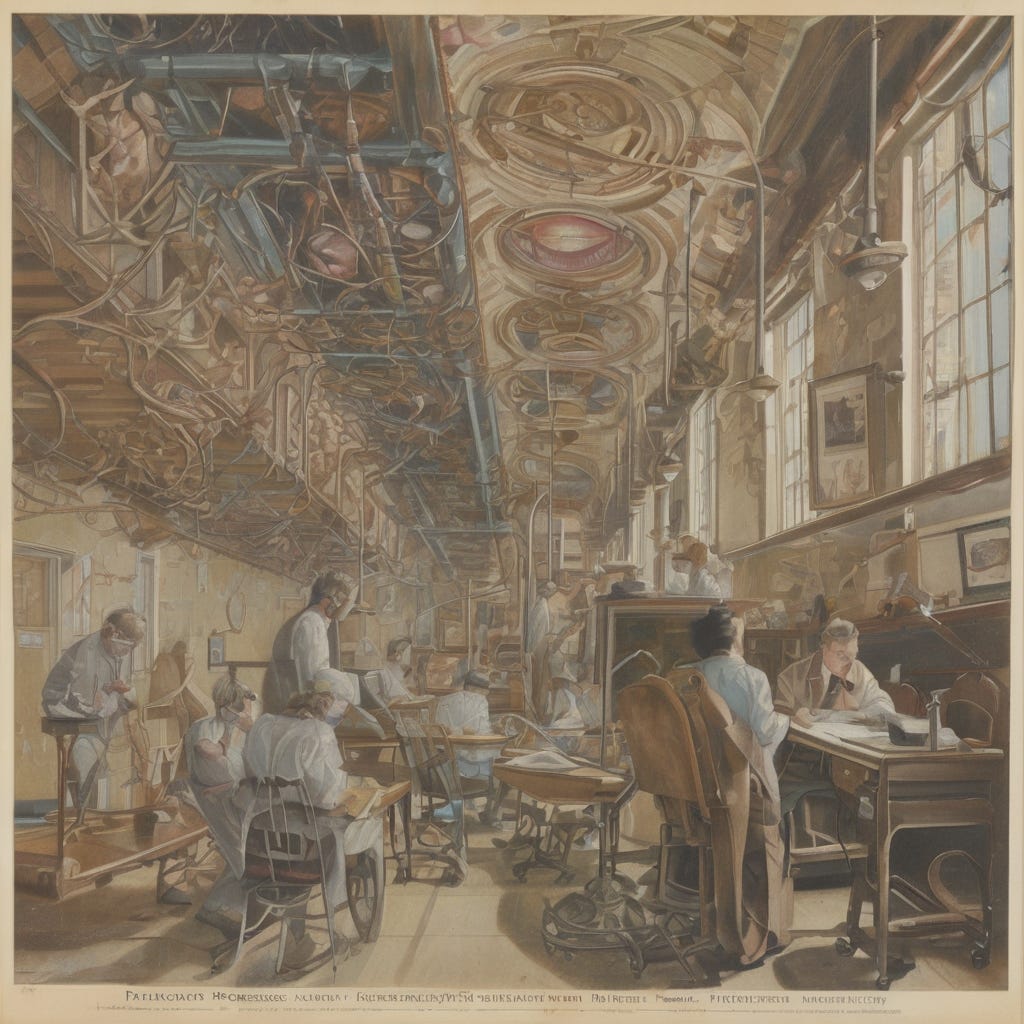On Pathology and Progress
Reconciling the “Is” and the “Ought” Across Time
The question of being is the question of the truth of being, of what it means for something to be. – Martin Heidegger
The concept of pathology—so often associated with illness or dysfunction—has a deeper, more universal meaning: deviation from an optimal state. But what, we must ask, is optimal? Is it a fixed ideal, as Plato believed, or a context-dependent purpose, as Aristotle argued? Or is it something more fluid and dynamic, evolving through history as Hegel suggested? In tracing the evolution of this question, we uncover not just the roots of pathology but the essence of progress itself.
To understand how humanity grapples with this tension, we must journey through the ideas of philosophy’s greatest minds. From Plato’s eternal Forms to Machiavelli’s effectual truth and Hegel’s dialectical reconciliation, each offers a lens through which to view the elusive dance between what is and what ought to be.
Pathology and the Optimal State
At its heart, pathology reflects the gap between the real and the ideal—the “is” and the “ought.” This definition transcends its origins in medicine to touch every domain of life: politics, ethics, business, and personal growth. In each case, pathology signals not just failure but deviation—a departure from what could or should be. Yet the idea of deviation implies a baseline: an optimal state. Herein lies the rub. Who defines optimality? And is it fixed, like a beacon, or shifting, like the currents?
This question has perplexed thinkers across centuries. It is no accident that their answers mirror the conditions of their time. Plato, Aristotle, Machiavelli, and Hegel each offer profound insights, but their visions diverge on one critical point: is optimality universal or contextual? From this divergence flows a cascade of debates—about truth, virtue, progress, and the role of human agency.
Plato: The Invariant Ought
For Plato, the question of optimality was simple: it lies in the realm of the Forms. These are not mere abstractions but perfect, eternal realities that transcend the material world. Justice, for instance, is not what a society enacts but what a philosopher apprehends through reason. For Plato, pathology is the failure to align with these immutable ideals—a misstep on the ladder of truth.
This perspective is both inspiring and exacting. It calls humanity to rise above its frailties, yet it risks alienation from the practical. Plato’s Republic is a vision of justice, but one so removed from the real that it borders on authoritarianism. For Plato, the “ought” stands high above the “is,” casting a long shadow over human imperfection. But what happens when the ideal becomes so distant that it loses its grip on reality?



